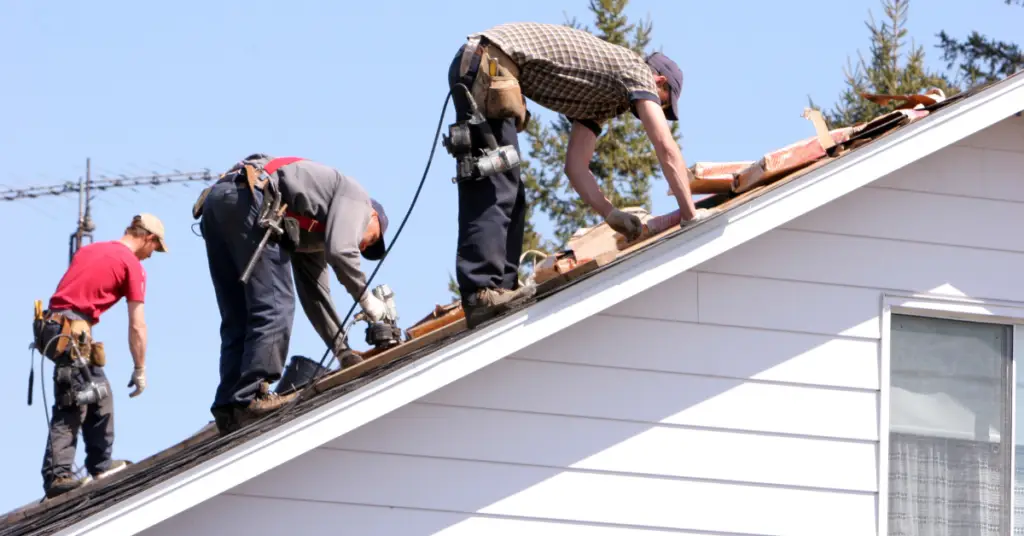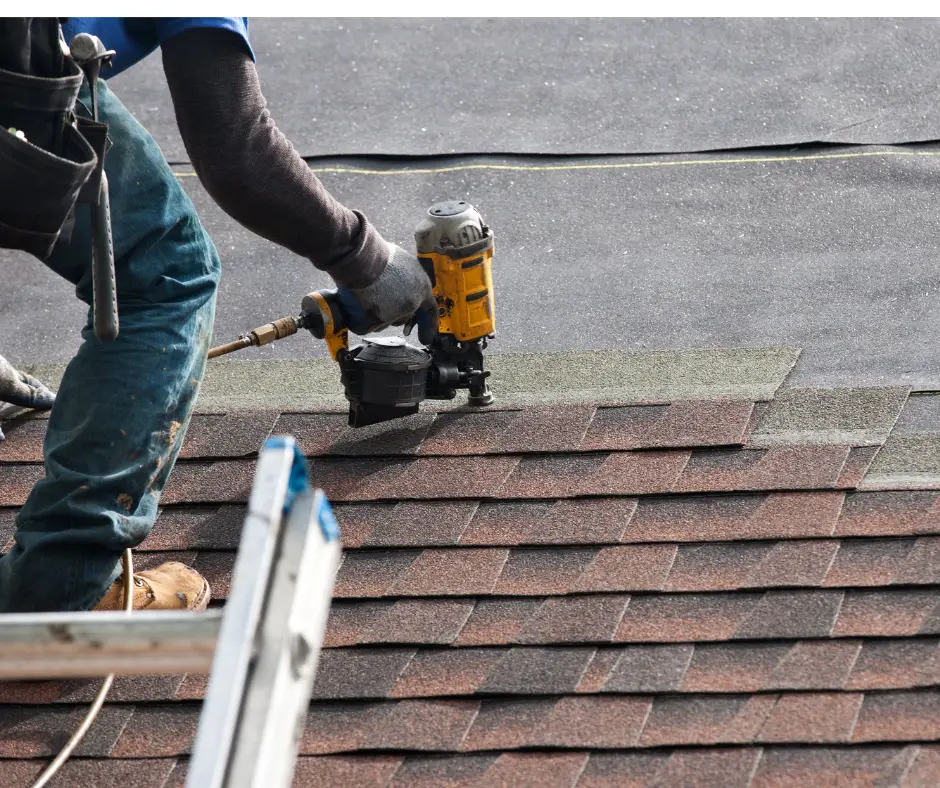Choosing the Right Asphalt Roof Installer
Choosing the right asphalt roof installer can be a daunting task. It’s a decision that significantly impacts the longevity and performance of your roof.
Asphalt shingle roofs are popular for their durability and aesthetic appeal. They come in a variety of styles and colors, fitting any architectural design.
However, the success of your roofing project largely depends on the expertise of the asphalt roof installers. Their qualifications, experience, and reputation play a crucial role in the outcome.
This guide aims to help homeowners, property managers, and real estate investors navigate the process. It provides comprehensive information on selecting the best asphalt roofing contractors.
We’ll delve into the benefits of asphalt shingle roofs, factors to consider when choosing a contractor, and tips for ensuring a successful installation.
By the end of this guide, you’ll be equipped with the knowledge to make an informed decision on your asphalt roof installation.

Understanding Asphalt Roofing
Asphalt shingle roofs offer numerous benefits, making them a popular choice for many homeowners. They are durable, cost-effective, and easy to install. Asphalt shingles are also known for their ability to withstand harsh weather conditions, offering excellent protection for your home.
One of the appealing aspects of asphalt roofing is the variety of styles and colors available. Whether you prefer a traditional or modern look, there’s a shingle style to match your preference. The wide range of color options allows for greater flexibility in complementing your home’s exterior design.
When choosing asphalt shingles, it’s important to consider their lifespan. Most asphalt shingle roofs last between 15 to 30 years, depending on the quality of the shingles and the expertise of the installation. High-quality shingles, combined with professional installation, maximize longevity and performance.
To ensure the best performance from your asphalt shingle roof, regular maintenance is crucial. This includes routine inspections and addressing any minor issues promptly. With proper care, asphalt roofs can provide many years of reliable service.
In summary, asphalt roofing offers a winning combination of affordability, aesthetics, and durability. Understanding these key aspects will guide you in making the best roofing choice for your home.
Qualifications of Asphalt Roof Installers
Choosing the right asphalt roof installer starts with evaluating their certifications and credentials. These qualifications indicate the installer has met industry standards. Make sure potential contractors can provide proof of their certifications.
Experience and reputation play key roles in selecting an installer. Contractors with years of experience have likely encountered various installation challenges. A strong reputation indicates quality work and satisfied clients.
Checking professional affiliations can also be very insightful. Membership in organizations like the National Roofing Contractors Association (NRCA) reflects adherence to industry standards. These associations often provide resources for ongoing training.
Continuous training ensures that installers are updated on the latest roofing technologies and methods. This is crucial, especially with the evolving nature of roofing materials. An installer committed to ongoing education is likely to provide superior service.
In summary, focus on these three key areas when selecting an installer:
- Verify their certifications and credentials.
- Evaluate their experience and reputation.
- Consider their involvement in professional organizations and commitment to ongoing training.
By doing so, you ensure that your asphalt roof installation is in capable and reliable hands.
Evaluating Asphalt Roofing Contractors
Evaluating asphalt roofing contractors goes beyond checking qualifications. Start by reading reviews and client testimonials online. These reviews provide insight into the contractor’s work quality and customer service.
Look for patterns in the feedback. Consistent praise is a good sign, whereas repeated issues are red flags. Reviews can help you narrow down your choices to the most reliable candidates.
Verifying insurance and licensing is another crucial step. Insurance protects you from liability if accidents occur during the project. Licensing ensures the contractor complies with local building codes.
Ask contractors to provide proof of their insurance and licenses. Genuine professionals will be happy to present these documents. This verification process can save you from unforeseen complications and costs.
Written estimates and warranties are important elements to consider. An estimate should detail all expected costs and outline the scope of the project. It should be comprehensive to avoid surprises later.
Compare estimates from different contractors. This ensures you get a competitive price. Be wary of estimates that are significantly lower than others, as these might indicate shortcuts.
Understanding warranties is equally important. A robust warranty should cover both materials and labor. It reflects the contractor’s confidence in their work.
In summary, consider these factors when evaluating contractors:
- Check reviews and testimonials.
- Verify insurance and licensing.
- Compare written estimates and warranties.
Being thorough in this evaluation phase ensures you choose a qualified and trustworthy roofing contractor for your project.
Preparing for Your Asphalt Shingle Roof Installation
Preparation is key when it comes to asphalt shingle roof installation. Start by inspecting the existing roof structure. This step helps identify any repairs needed before new shingles are added.
A thorough inspection can uncover issues like rot or water damage. Address these issues to ensure the new roof’s stability. Repairing the underlying structure prolongs the roof’s lifespan.
Next, discuss ventilation and insulation with your contractor. Proper ventilation prevents heat and moisture buildup in the attic. Meanwhile, insulation helps maintain energy efficiency in your home.
A well-ventilated roof can reduce cooling costs and extend shingle life. Consider newer insulation options that enhance thermal performance. Ventilation and insulation together play a vital role in roof function.
Understand the installation process fully. Familiarize yourself with what the project involves and what to expect. This knowledge helps alleviate any anxiety about the process and timeline.
Your contractor should walk you through each step. They’ll describe how old materials will be removed and how new ones will be laid out. Knowing these steps aids in tracking progress.
A few things to prepare include:
- Ensuring the roof structure is sound.
- Addressing ventilation and insulation needs.
- Familiarizing yourself with the installation steps.
Preparing adequately can streamline the installation and prevent future complications. This proactive approach ensures a smooth roofing experience and a lasting roof.
The Installation Process: What to Expect
The installation process begins with thorough site preparation. A professional crew will remove old shingles and prepare the area. This step is crucial to avoid issues with the new roof.
Safety protocols come first during any roofing installation. Contractors use harnesses and scaffolding for protection. This ensures that the installation is conducted safely and efficiently.
Next, expect to see materials and tools arrive on-site. The contractor will stage these items for easy access. Proper staging helps keep the project on schedule.
Effective project management is vital for a smooth installation. Your contractor will oversee the project timeline and keep it moving forward. This involves coordinating labor, materials, and inspections.
A clear timeline outlines each phase of the process. It helps in setting expectations and minimizing disruptions. Follow up with your contractor regularly to ensure milestones are met.
The installation culminates in laying down the shingles. Workers align and attach them securely. Proper nailing techniques are applied to prevent issues like blow-offs.
Once installation is complete, attention turns to cleanup. The crew will remove debris and dispose of old materials. A tidy workspace ensures nothing hazardous is left behind.
Finally, an inspection post-installation verifies quality workmanship. Your contractor will perform a walk-through with you, examining the finished roof. This step is essential to confirm satisfaction and resolve any remaining concerns.
List of key actions during installation:
- Adhering to safety protocols
- Ensuring site preparation and material staging
- Managing the project timeline
- Conducting post-installation cleanup and inspection
With these processes in place, the installation is set for success. A seamless installation maximizes your roof’s performance and longevity.

Maintenance and Aftercare of Your Asphalt Roof
Maintaining your asphalt roof ensures it remains in good condition. Regular inspections are key to early problem detection. Schedule inspections at least twice a year.
A robust maintenance plan prolongs roof life. It should include gutter cleaning and shingle checks. Maintenance can prevent costly repairs down the line.
Address issues promptly to avoid bigger problems. If you notice missing shingles or leaks, act quickly. Timely repairs maintain the roof’s integrity and performance.
Consider consulting your roofing contractor for ongoing support. Some contractors offer affordable maintenance services. They can provide expert advice and handle necessary repairs efficiently.
Choosing Eco-Friendly and Energy-Efficient Options
Homeowners today often prioritize sustainability. Eco-friendly asphalt shingles are available and can help reduce environmental impact. Many are made from recyclable materials, supporting green building practices.
Energy efficiency is another key consideration. Modern asphalt shingles come with reflective coatings. These coatings help reduce heat absorption, lowering cooling costs and increasing home comfort.
Investing in energy-efficient shingles can lead to significant savings. Over time, reduced energy bills help offset initial costs. In addition, such choices often increase the home’s resale value.
Considering eco-friendly options demonstrates a commitment to environmental stewardship. It’s beneficial for the planet and enhances the home’s efficiency. Consult with your installer about the best green options for your roof.

Final Considerations and Making Your Decision
When deciding on an asphalt roof installer, comparing multiple quotes is crucial. This process ensures you’re getting competitive pricing and services. Don’t be swayed by the lowest price alone; value and quality are vital.
Clear communication with potential contractors is necessary. Ensure that all questions are answered fully and promptly. A reliable contractor should keep you informed every step of the way.
As you finalize your decision, review all aspects of the contractor’s proposal. Consider their experience, reputation, and previous work. Make sure their timeline and scope align with your needs.
Ultimately, trust your instincts. Choose an installer who demonstrates professionalism and meets all your criteria. This careful selection will lead to a successful roofing project.
Conclusion
Selecting the right asphalt roof installer demands careful consideration of many factors. With thorough research, you can confidently choose the best professional for your roofing needs.
